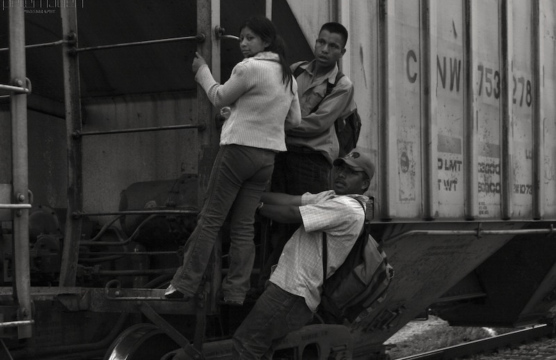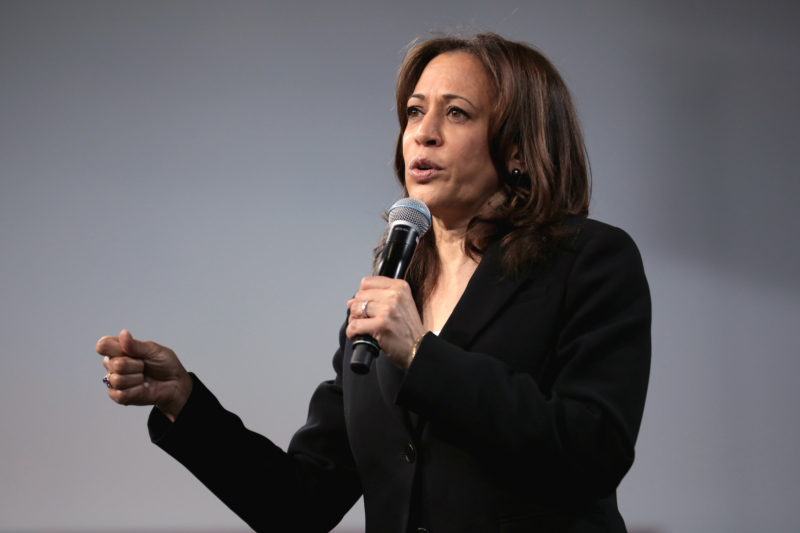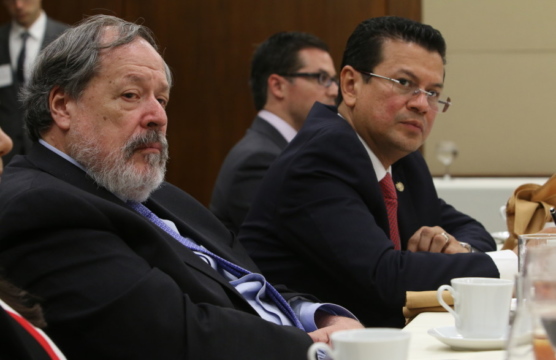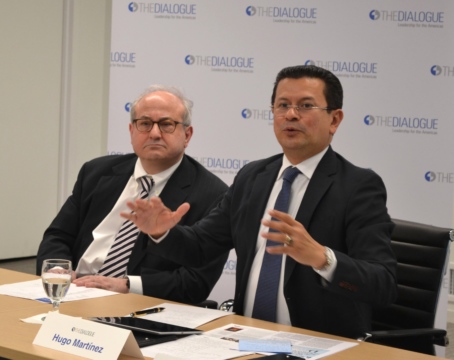
Congressional Testimony: Challenges at the Border
More than 52,000 Central American children, passing through Mexico, have sought entry into the US.
Vice President Kamala Harris walked off Air Force Two in the wee hours Wednesday morning after one of her highest profile experiences since taking office — a foreign trip to a region that is central to her growing portfolio. The two-day trip to Guatemala and Mexico showed the complexity of the assignment President Biden has given her — trying to reduce immigration flows from Central America — and the political trip wires she faces.
Noah Bierman, from the Los Angeles Times, travelled with Vice President Harris to the region. He interviewed Rebecca Bill Chavez, non-resident senior fellow at the Inter-American Dialogue, to assess the trip and the bigger questions it raises about the Biden administration’s strategy for reducing migration.
Bierman: What do you think was accomplished on the trip?
Chavez: The fact that it was the vice president’s first trip abroad signaled that the administration is committed to addressing the drivers of migration: pervasive violence, crushing poverty exacerbated by climate change, and widespread government corruption. No set of border policies, no matter how strict, will keep desperate people who lack hope from fleeing the Northern Triangle [Guatemala, Honduras and El Salvador], so going to the source and addressing these root causes is a step in the right direction for what is a generational challenge.
Did it meet your expectations? Any surprises?
Chavez: I was pleased to hear that Harris pushed the corruption issue in Guatemala. We shouldn’t turn a blind eye to the recent assaults on judicial autonomy and anti-corruption mechanisms in the three Northern Triangle countries and in Mexico. In all four countries, presidents have taken deliberate steps to undermine checks and balances.
What did you make of Harris’ emphasis on telling people in Guatemala that they would be turned back if they reach the border? Is that at odds with her message that people are fleeing because they have no choice because of violence and severe poverty?
Chavez: I just returned from a trip to the border, and I can tell you that, as Harris recognizes, the vast majority of migrants don’t have a choice when it comes to embarking on the harrowing journey to the United States. It’s understandable that she would want to deliver this direct message. Unfortunately, the words “don’t go” aren’t going to impact the decision making of a mother whose children’s lives are threatened by gangs or a father who can’t put food on the table for his family. Such language — especially if it isn’t coupled with a plan for effectively addressing root causes and providing help like Covid-19 vaccines — won’t help. It’s why addressing root causes in a real and robust way is the right way forward.
How much and how quickly can we really expect migration from the Northern Triangle to slow, if at all?
[...]
More than 52,000 Central American children, passing through Mexico, have sought entry into the US.
The outlook for the Northern Triangle is one of both optimism and apprehension.
On Monday, December 5th, 2016, the Dialogue welcomed El Salvador’s Minister of Foreign Affairs Hugo Martínez for a discussion on US-El Salvador relations in light of recent political developments in Central and North America. The discussion focused on the Plan for the Alliance for Prosperity of the Northern Triangle as the guiding policy of US engagement with El Salvador and the neighboring countries of Guatemala and Honduras.


